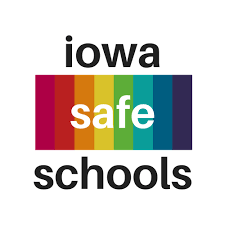Change needed in job training, development in new pandemic workforce

A group of nearly 100 people gathered Thursday to address challenges facing the state’s workforce and what needs to be done as the state continues to recover from the coronavirus pandemic.
The meeting, hosted by AMOS Institute of Public Life, the education and training arm of AMOS [A Mid-Iowa Organizing Strategy], drew members of the region’s faith-based community, business leaders, and state and local government officials.
The meeting focused on Project IOWA, a nonprofit organization that offers support and training to Iowans looking to improve their careers.
Paul Osterman, a professor of human resources at the MIT Sloan School of Management, the keynote speaker of the meeting, said job training programs, such as Project IOWA, have had great success in helping low-wage workers climb the ladder to better-paying jobs.
He said nothing has changed since the pandemic began to spread, “it’s just intensified it,” in reference to the need for services.
Osterman said one challenge that needs to be addressed is helping people move from one job to another, something Project IOWA focuses on.
There isn’t a strong public system to help with that, so the work Project IOWA does is essential to not only train workers, but also provide access to good jobs and creating good jobs.
“And these programs do both of these,” Osterman said. “You provide training, skills and connection to employers, but programs like these also create worker jobs, because there is research that shows that in communities that have effective human capital, skill development systems, employers do better. More jobs are created. It’s better for entrepreneurs. It’s better for employers. It helps new businesses coming to the community when they can see that the community is invested in the skills of its people, and sharing the cost of developing the skills of its people.
“Over time, it actually improves the economic health of the community,” he said.
Using data from the Project Quest program in San Antonio, Osterman said people who participated in the job training program, over time, made as much as $5,000 more than those who didn’t participate.
He said not only do people who participate in the program do better, but public officials see there is a positive rate of return on their investment.
“The return is clearly positive, the payback period is within a couple of years, it’s not just smart for those individuals in the sense of a private benefit for them, it’s a smart social benefit,” Osterman said. “It’s a case you can make for the public sector and the business community that this is a real investment. This is not simply a transfer support. It’s not a form of welfare or public support.”
The key to the success of the program is strong support for “wraparound services,” such as child care assistance, that keep participants in the program. Another key is that they are directly connected to employers, he said.
“These programs work with employers to identify where the jobs are and what’s needed, and it puts people into those jobs, so they’re guaranteed to have more success than the average job training program,” Osterman said.
He described Project Iowa’s completion rate of 85%, and its 80% job placement rate, as “outstanding” and above the national average for community colleges and other training programs across the country.
Programs such as Project Iowa also “pull people from communities that are typically not connected to training programs,” he said.
Challenges facing programs moving forward include not only finding resources to support services, but also to give participants what Osterman described as “life skills,” not only to prepare them for the first job they will get, but for the next job and the one after that.
He said people need a broad set of skills, including digital, teamwork, reading and problem-solving skills that are highly desirable by employers.
“If you train people in those sets of abilities, then they have opportunities for success beyond the immediate job placement,” Osterman said.
Ernesto Cortez, co-chair of the Industrial Areas Foundation, told those attending the meeting on the virtual platform Zoom that workforce development should become part of a long-term strategy to “create an inclusive economy that includes working with employers.”
“We want employers to be successful,” he said. “If they’re not successful, we don’t get the jobs. We don’t get the jobs. We don’t get the jobs that pay decent wages. We don’t get the jobs that have a future.”
Thursday’s discussion also included comments from a panel of speakers, including Mike Ralston, president of the Iowa Association of Business and Industry, Mary Bontrager, vice president of talent development at the Greater Des Moines Partnership, Kathy Leggett, policy adviser at Future Ready Iowa, and Julie Fugenschuh, project director at Project IOWA.
Bontrager said upskilling and re-skilling the workforce will be critical moving beyond the pandemic.
“We can’t put 60% of our workforce out on the street,” she said. “Prior to this we had very low unemployment. There will be people whose jobs just won’t exist for them to come back to.”
Bontrager said education and training cannot look the way it has in the past.
“Education and training is not a one and done environment anymore,” she said. “It’s an environment of continuous learning.”
She said a public-private partnership is needed so education and training can be delivered “more flexibly, openly, adaptable, resilient, and it’s useful lifelong learning to help everyone navigate in this future world of work.”
Leggett said more needs to be done to build partnerships between employers and community-based organizations, and she called on an increased focus on short-term skills training and employment.
“With people needing to change careers, looking to change careers, we have to focus on short-term opportunities to get them employed in high-demand jobs,” she said. “So I hope we can accelerate that.”
Watch the meeting in its entirety here. The password to gain access is: i==7TN5r









